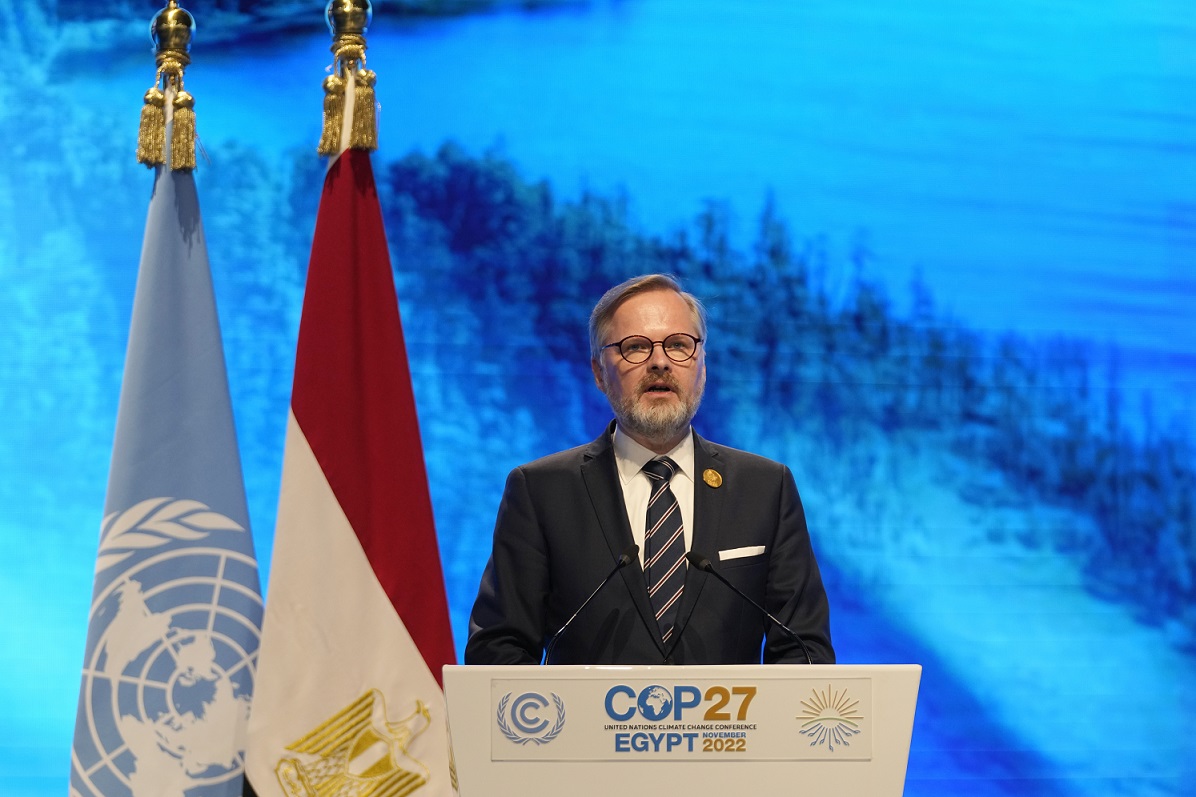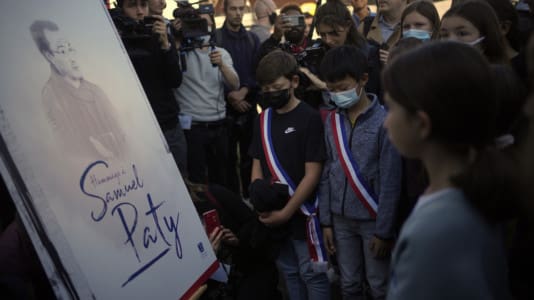Despite the war in Ukraine, the European Union remains committed to fighting climate change, even though the conflict has temporarily caused more fossil fuel consumption and negatively affected efforts to reduce emissions. Czech Prime Minister Petr Fiala said his during a speech at the UN climate conference (COP27) in Egypt on Tuesday.
According to Fiala, the outcome of the energy crisis caused by the war can also be positive, as it will reduce Europe’s dependence on Russian gas and fossil fuels in general.
“Russian aggression against Ukraine has a huge impact on our energy policy, but also on our policy to combat climate change,” Fiala told reporters in Sharm el-Sheikh. According to him, the energy crisis led to a kind of rationalization to continue combating climate change.
“It has also forced us to work faster to get rid of our dependence on fossil fuels from Russia and to build energy mixes that will make us less dependent on dictatorial regimes faster,” added Fiala.
“Although many European countries honor the commitments from the Paris Agreement, they were forced to temporarily use more fossil fuels than they had planned to keep their citizens warm,” said Fiala. According to him, this is understandable, but it should not weaken the determination to reduce emissions because global climate change threatens the entire planet.
The Czech prime minister emphasized that his government plans to move away from coal and toward renewable sources and nuclear energy.
“We are keeping our promises. By 2020, the Czech Republic reduced greenhouse gas emissions by 43 percent compared to 1990, which is much more than we had committed to,” he said.
Fiala, in his role as the head of the government of the country holding the EU presidency, also mentioned the EU’s climate package called Fit for 55. The package is designed to lead the 37 countries to a 55 percent reduction in greenhouse gas emissions by 2030 compared to the level at the end of the last century.
According to Fiala, Czechia also organized a discussion in Sharm el-Sheikh, together with Romania, on education in the field of climate change; several leaders participated in this, including the presidents of Poland, Estonia, and Bulgaria.
“Education in this area is important and must be based on scientific facts,” Fiala said. According to him, it is also necessary to be guided by scientific knowledge in the debate on climate policy.
“Science also gives us some hope. It’s important that we don’t just follow fear and apprehension because it’s never a good guide,” he added.





